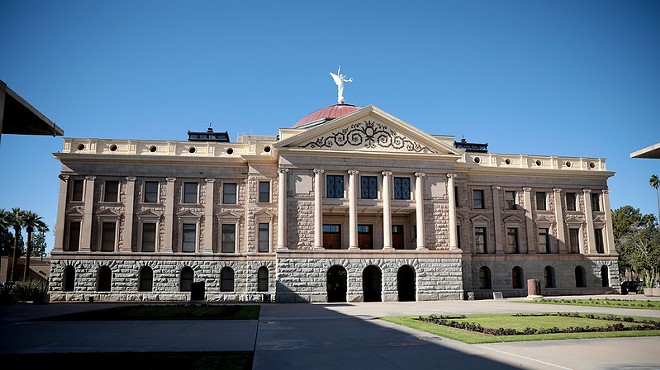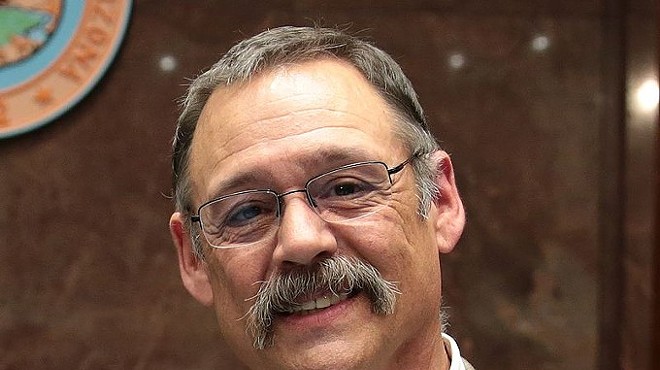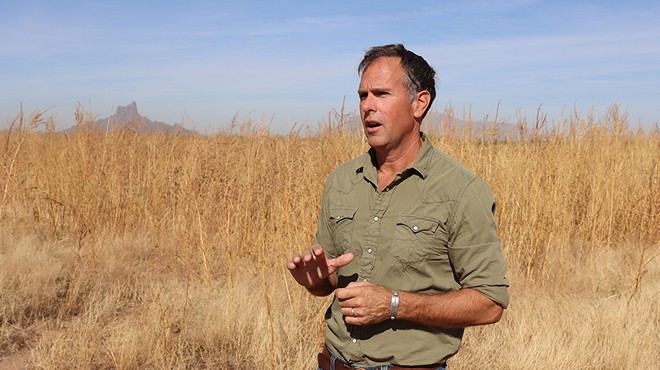Tuesday, March 1, 2016
Rosemont Mine Put on Hold By Hudbay Minerals
Opponents of the proposed Rosemont Mine were cheering news that the open-pit project in the Santa Rita Mountains has been delayed indefinitely.
Officials from Rosemont Copper’s Canadian parent company, Hudbay Minerals, announced on Feb. 24 that the project has been put on hold because of low copper prices and regulatory hurdles.
But company officials added in a press release that they still plan to move forward with the Rosemont mine once copper prices rebound.
“Hudbay remains committed to advancing Rosemont, which is expected to be one of the first new copper projects to be built once copper prices and capital market conditions improve,” the release states.
Mine opponent Gayle Hartmann said the company’s confidence in the project is a smokescreen to keep investors on board.
“Of course they sound bullish,” said Hartmann, president of Save the Scenic Santa Ritas, a nonprofit group that has battled the project from the start. “It’s not real, but that’s the way they have to sound for their investors.”
Hartmann said the mine, which would carve a mile-wide pit in the Santa Rita Mountains south of Tucson, “isn’t going to happen at all.”
But she said the announcement that Hudbay is delaying the mine is less meaningful than the upcoming decisions from the federal officials.
“We’re pleased but it doesn’t really mean anything,” Hartmann says. “What’s going to mean something is when the Army Corps denies their permit or the Fish and Wildlife Service says they have to all sorts of mitigation that they’re not going to be able to do.”
While Rosemont owns the land it plans to mine, the company wants to use U.S. Forest Service land as a spot to dump its mining waste.
Fish and Wildlife Service officials have been studying the impact that the mine will have on area’s habitat, where endangered species including a jaguar and an ocelot have been spotted. A biological opinion, which is necessary before the U.S. Forest Service can approve the project, is expected to be released later this month.
The project has also run into trouble with the U.S. Army Corps of Engineers and the Environmental Protection Agency, which must approve a Section 404 Permit under the Clean Water Act. Correspondence between Rosemont and the federal agencies has indicated that the regulatory bodies are skeptical about Rosemont’s proposal.
Hartmann said that there were a “host of issues” for opposing the mine, including the impact on wildlife and the tourism industry in Southern Arizona.
But the biggest one is water. Hartmann remains concerned about the mine’s plan to pump water away from the aquifer that serves Green Valley, Sahuarita and the Tucson area to “wash their rocks” and the danger that mining pollution, such as heavy metals, could have on Cienega Creek, Davidson Canyon and other areas near the mine.
“Water is a limited resource—and our most precious one,” Hartmann said.















